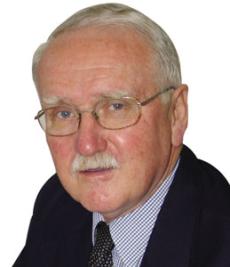 One of the strongest movements in the world in recent decades has been the ecological movement. It has changed the way many millions of people think and feel about our world becoming a powerful political force in many countries.
One of the strongest movements in the world in recent decades has been the ecological movement. It has changed the way many millions of people think and feel about our world becoming a powerful political force in many countries.
The movement has de-centred the human person in a very healthy way. We no longer see ourselves as an independent ‘master’ of creation. We have come to see ourselves as part of the web of life, part of the cosmos and perhaps the most dangerous part because it is our selfish actions that have put the earth at risk.
The ecological movement is based on respect for life in all its forms. We have come to see that human flourishing depends on our finding our place, our home, in the cosmos. We depend on air, light, soil and water at every moment of our existence. We rely on nature for the symbols that nourish and sustain us emotionally, spiritually and artistically. True development and peace depend on our living within the limits of creation and with respect for all creatures.
But although there are many Christian ecologists, it could hardly be called a Christian movement. It has been a scientific, secular and popular movement. The Church has only come to an ecological consciousness in recent years. Despite papal and episcopal documents and a number of recent books by eco-theologians it is still not widely supported by everyday Christians. But maybe that is changing. Over the Christmas break I visited friends and relatives in Queensland and I was surprised at the number of people who are now trying to conserve their washing and bathing water. The drought and climate change have forced us to realise that we cannot abuse our home, the earth, without suffering serious consequences.
There is a lot more we could learn about God and the “Kingdom of God” by listening to and dialoguing with the ecological movement.
Fr Noel Connolly
director@columban.org.au